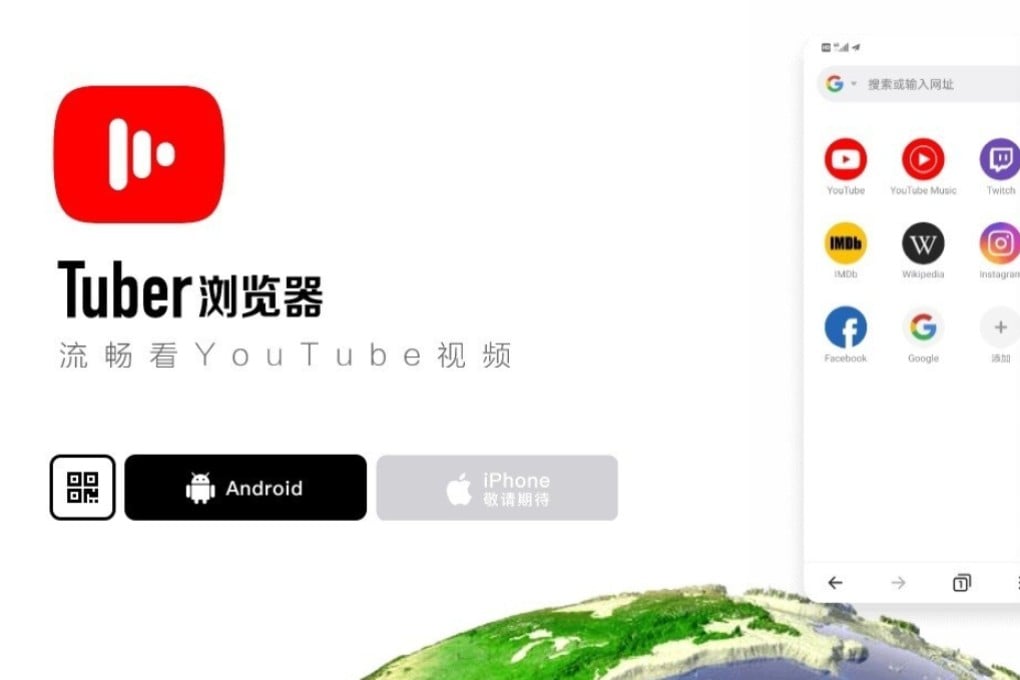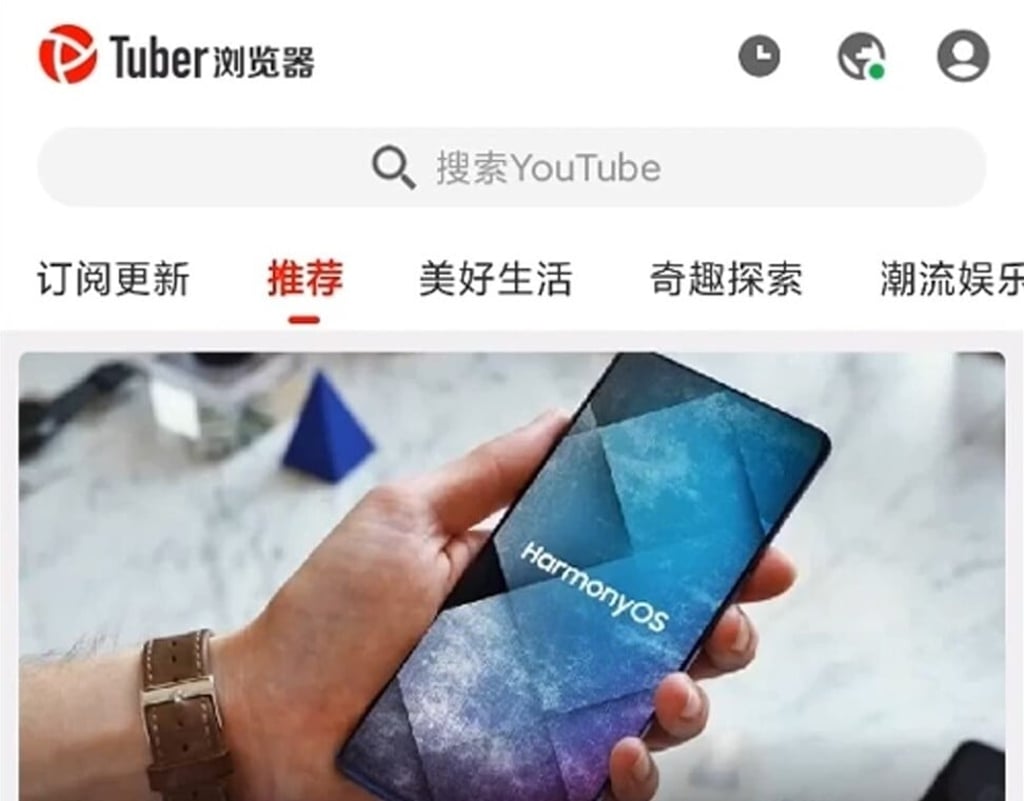Chinese app called Tuber provides a still-censored look over Beijing’s ‘Great Firewall’
- A person who tested the app, however, says despite offering access to some US social media sites, ‘There’s not a single sensitive thing there’
- Tuber grants some access to innocuous overseas content like entertainment news while still blocking all material censors deem politically sensitive

A Chinese app has begun allowing limited and heavily censored access to some US social media sites that are normally blocked on the mainland, including YouTube, Facebook and Twitter. The browser, called Tuber, grants some access to innocuous overseas content like entertainment news while still blocking all material Beijing’s censors deem politically sensitive.
Tuber is the latest development in one of the many fronts on which Beijing and Washington are squabbling: the level of access each country’s residents have to each other’s social media platforms.
Chinese authorities have blocked nearly all American social media websites over the last decade, and the Trump administration has moved in recent weeks – unsuccessfully so far – to ban the Chinese apps TikTok and WeChat from the US market.

Tuber was celebrated on Twitter on Friday by some Chinese state media writers who said it was a sign that China’s internet was opening up, but experts and people who tested the app in China said that was not the case.
“It’s fake,” said one person who tried using Tuber to view materials on the bloody 1989 Tiananmen Square crackdown and on the Falun Gong, a quasi-religious group that is banned on the mainland and called an “evil cult” by Beijing, but found nothing.